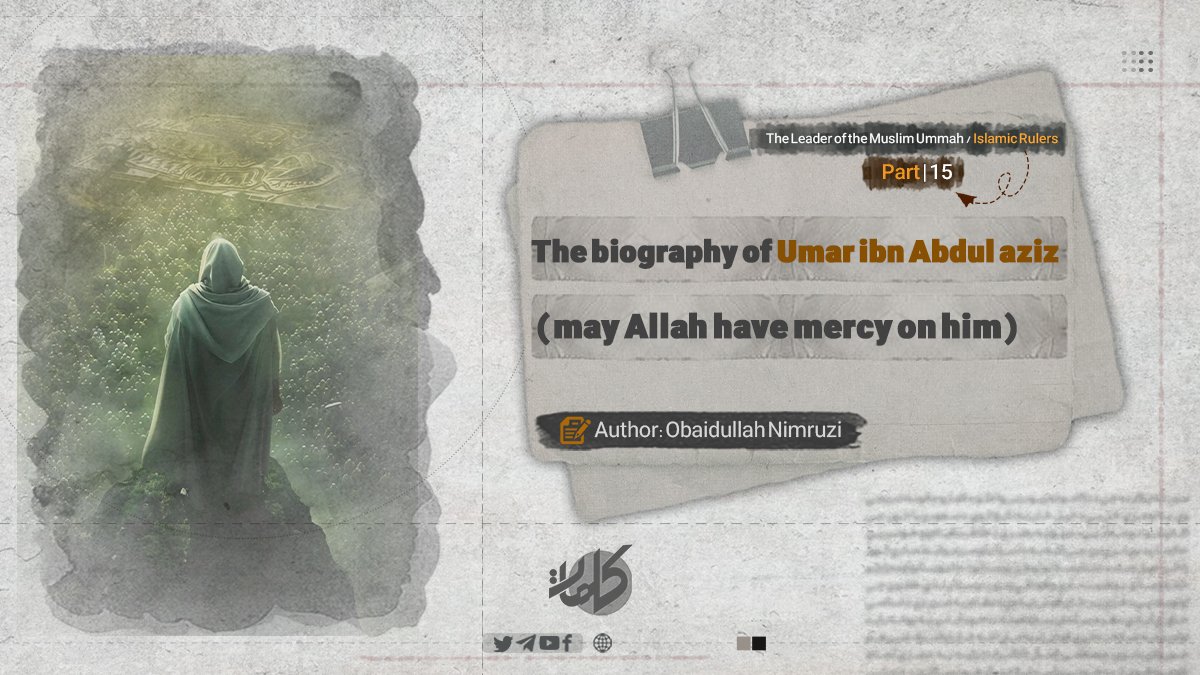
Author: Obaidullah Nimruzi
The Biography of Umar ibn Abdul Aziz ‘May Allah Have Mercy on Him’ (Part 15)
Attention to the Propagation and Promotion of Islam
Hazrat Umar bin Abdul Aziz, may Allah have mercy on him, did not limit himself to reforming Muslims and spreading religious laws in the country; he also paid special attention to propagating Islam among non-Muslims and achieved fruitful results in this endeavor.
Baladhuri writes in Futuh al-Buldan: “Umar bin Abdul Aziz wrote seven letters to the ‘rajas of India’ and invited them to Islam. He promised that if they embraced Islam, their kingdoms would remain as before, and their rights and duties would be the same as those of Muslims. Since these kings had previously known about Umar’s exemplary ethics and behavior, as soon as these letters arrived, they accepted Islam and adopted Arabic names.”
When Ismail bin Abdullah bin Abi al-Muhajir, the freed slave of Banu Makhzum, attained the governorship of the Maghreb regions, he demonstrated good ethics and conduct to the people of that region and invited the Berber people to Islam. Hazrat Umar ibn Abdul Aziz (may Allah have mercy on him) wrote a letter to the people of that region, inviting them to embrace Islam. Ismail read this letter at every meeting, and ultimately, Islam triumphed there. After assuming the caliphate, he invited the sultans of Transoxiana to accept Islam through letters. When the people of Khorasan accepted Islam, they were exempted from paying taxes, and every new Muslim was provided with a house, given a reward, and offered a fixed monthly salary and wages.
The Reform and Financial Program of Umar ibn Abdul Aziz (May Allah Have Mercy on Him)
As a result of Umar’s financial reforms and the prevention of wrongful taxes and theft, along with his establishment of a government system grounded in religious and moral principles, his administration faced many challenges, including financial losses; however, there was general welfare throughout the country, and the people’s wealth reached a level such that, with great effort, not a single person was found who was entitled to receive zakat and accept its share.
Yahya bin Saeed says: “Umar bin Abdul Aziz sent me to the African region to collect zakat. I collected the zakat from the wealthy, and no matter how hard I tried to find someone entitled to receive the collected zakat, not even a single needy person was seen, because Umar had enriched everyone. Finally, I used this collected amount to buy and free a number of slaves and made the Muslims responsible for their rights.”
Another member of the Quraysh tribe mentions: During the short period of Umar bin Abdul Aziz’s caliphate, the situation in the country was such that, in addition to this apparent blessing, which is of secondary importance in a true Islamic government, the greatest revolution occurred in the attitude of the people and the nature of their conversations. His contemporaries remarked that during the reign of Walid, wherever they gathered, discussions revolved around the construction and advancement of material things, reflecting Walid’s interests. In contrast, Suleiman was passionate about delicious foods and had a great love for women; therefore, during his caliphate, the gatherings were filled with such conversations. However, during the time of Umar bin Abdul Aziz, the topics of conversation shifted to voluntary prayers, acts of worship, remembrance, and good deeds. Whenever three or four people gathered, they would ask each other: What surah are you reciting at night? How much of the Quran have you memorized? How often do you finish the Quran, and how long did it take you before? How many days do you fast in a month?
Continues…


